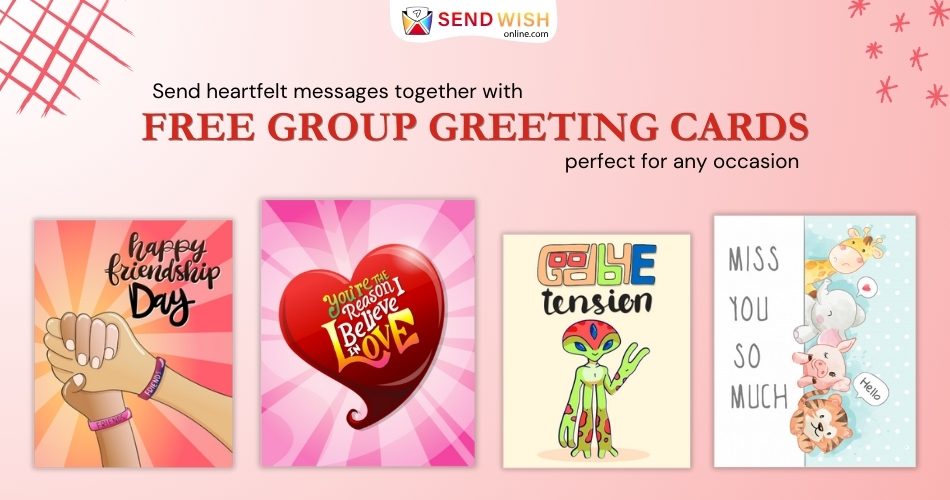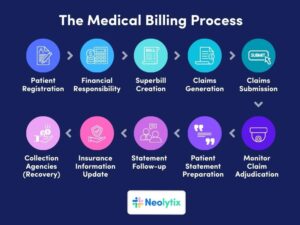Technology is continuously rewriting conventional practices in this fast-moving digital world. Communication and celebration of special occasions are no different. Probably the most remarkable shift of late is toward group eCards—a modern way of bringing people together to share their feelings through virtually collective and meaningful means. The following paper looks into this phenomenon of group eCards, from their very inception to the benefits derived and the role they play in digital togetherness.
The Evolution of Greetings: From Paper to Pixels
A Brief History of Greeting Cards
Greeting cards have been here through thousands of years since people, in the earliest times, used to exchange handwritten messages on papyrus or other material. Printed cards became more common in Europe in the 15th century due to the printing press, which democratized them. Greeting cards were quite in vogue during most holidays, birthdays, and other special occasions by the 19th century. Including personalized messages and illustrations gave each card its individual touch.
The Arrival of eCards
The advent of the internet toward the end of the 20th century changed everything about the way people communicated. Following up on emails and online platforms, the idea of eCards was born—sending digital greetings to loved ones. They provided a simple and fast, often free, alternative to traditional paper cards, with animated graphics and multimedia features besides.
The Birth of Group eCards
The evolution of technology furthered the development of eCards. The increasing need for digital communication that involved collaboration birthed the concept of group eCards. Such cards allow many people to write messages in a single card, and the receiver receives a collective greeting that voices the feelings of a group. Group eCards mainly serve such events as birthdays, retirement, farewell, holidays, and other celebrations, where sending a single message from staff, friends, or a family group is more meaningful than separate greetings.
How Group eCards Work
The Mechanics of Group eCards
Group eCards work easily and are useable by everyone, regardless of the level of computer expertise. Normally, one person will initiate a card, then invite others to add their messages. This can be accomplished through email, social media, or by creating a specific link from the eCard platform. Contributors can add their own messages, images, or even videos to the card, which is normally laid out as a scrollable document or presented as a slideshow.
After all contributions are made, the card can be designed with various themes, colors, and layouts according to the occasion. The finished card can then be sent directly to your recipient via e-mail, shared on social media, or even printed out as a hard copy and kept as a physical keepsake.
Popular Group eCard Sites
A few websites have become pretty famous regarding their services in group eCards. GroupGreeting, Kudoboard, and SendWishOnline are such websites that provide numerous templates and customization options; making it pretty easy for users to create a personalized collaborative card. Such platforms generally incorporate features like scheduled delivery, tracking, and message collection over time, so there is time for everyone to contribute.
The Benefits of Group eCards
-
Building a Sense of Community
Group eCards can bind people together, even if they are actually far from each other—this is one of the greatest advantages. In a world where remote work and online education or online socialization have risen and become a part of reality, group eCards keep a sense of community and connectedness. Group eCards allow multiple persons to contribute to just one card, which can create a mutually shared experience that bonds people in a sense of belonging.
-
Ease and Accessibility
Group eCards are very convenient in that no physical cards, postage, or getting together is required. Anywhere in the world, one can create an eCard and share it with others. This makes it very useful for people who are separated by distance. This accessibility is especially invaluable in multicultural or international work settings where colleagues would be across different time zones and continents.
-
Environmental Friendship
Now, with an increasing environmental awareness, group eCards can indeed serve as an excellent substitute to paper cards in an eco-friendly manner. Not using paper and ink and eliminating transportation involvement in sending paper cards reduce the carbon footprint and save natural resources. This is a big plus for those who care about the environment.
-
Customization and Personalization
Group eCards customize to a great extent, so users can adapt the card for whatever occasion and person in mind. One can add personal messages, photos, and videos to a group eCard to make it as personalized and distinct as the person to whom it is being sent. This level of personalization will guarantee that the card will be meaningful and represent the collective feelings of the group.
-
Cost-Effectiveness:
While more traditional greeting cards can be very expensive, especially when tacking on the printing and postage, group eCards are almost always much less expensive, and sometimes free. For this reason alone, they are a great option for individuals or organizations who want to express their best wishes, yet remain budget conscious.
Group eCards and Their Role in Celebrations Today
Group eCards at Work
Group eCards have lately found broad acceptance in the corporate world to celebrate personal occasions such as birthdays, work anniversaries, promotions, and retirements. The eCard allows many colleagues to write messages of appreciation and good wishes if employees are working remotely. This paper discuses the use of group eCards in expressing sentiments of support while going through a rough time; for example, the loss of a loved one, passing through a challenging personal situation.
Group eCards for Family and Friends
Group eCards help families and friends to keep up with one another and remember special occasions—from birthdays or holidays to any other major event in life. Group eCards give the space and ability to loved ones to easily share their thoughts in a collective, meaningful way. In this sense, they are especially very helpful to geographically spread-out families, offering the ability to bridge that very distance and create a feeling of togetherness.
Group eCards for Community and Social Groups
Group eCards are effectively used by community and social groups, like clubs, religious organizations, and volunteer groups, for portraying the successes or happenings of the group, to celebrate a special occasion within the group, or even to express gratitude towards group members. Enabling the contributions of all, group eCards empower the sense of community and engrain values that bond the group together.
Group eCards: An Emotional Touch
Create Long-Lasting Memories: Probably, this is one of the most important emotional benefits associated with group eCards. Not only does a person receiving them get messages from many people, but they also get to see the collective effort and thought that went into creating the card. This makes group eCards even more than a greeting—they become something kept close to the heart and visited with appreciation over time.
Improving Emotional Welfare
Especially at a time when many people feel relatively isolated and lonely due to the COVID-19 pandemic, group eCards can help raise the emotional well-being of people. Opening a group eCard lets the person who receives it know that there are people at his or her back and shows that he or she is important to somebody else. This can be an emotionally uplifting experience contributing to their mental health.
Relationships— Building Them Stronger
Group eCards even serve the purpose of strengthening bonds. When an individual participates in creating a group eCard, he or she is involve in a collaborative activity that is positive in nature and thus fosters stronger bonds among people. This experience of performing a task together may bring them closer to each other and knit them as one whole unit.
The Future of Group eCards
Technological Advancements
The future of group eCard looks bright with the advancement in technology. Further innovations like augmented reality and virtual reality could lead to even greater immersion and interactivity within a group eCard. AI-driven personalization can also have a role in the tailoring of group e-card much more precisely towards the receiver’s persona and preferences.
Integration with Social Media
Another area of potential growth is the integration of group eCard with social media sites. As social media remains one of the major forms of communication, the ability to create and share a group eCard directly from within these channels would further enhance their convenience and popularity.
Entering New Markets
The emergence of group eCard does not relate to any specific region or demographic. It is more likely that this new creation in the field of technology will flood new markets, including emerging economies and different cultural backgrounds, as soon as its benefits are recognize. A global exposure on such large scale could bring even newer and more creative uses for group eCard and firmly establish them in modern communication.
Conclusion:
Group eCards are, therefore, one giant step ahead in the way we share our emotions to make moments memorable. They merge the ease of digital communication with the warmth and personal touch attributed to conventional greetings—an effortless way of creating digital together-time. As the world advances more and more in taking up technology, interest in group eCard will only continue to increase, hence binding people together in ways which shall remain meaningful and memorable. Use in the workplace or amongst family and friends, group eCard display the lasting power of combine sentiment and a need to connect in a digital age.


